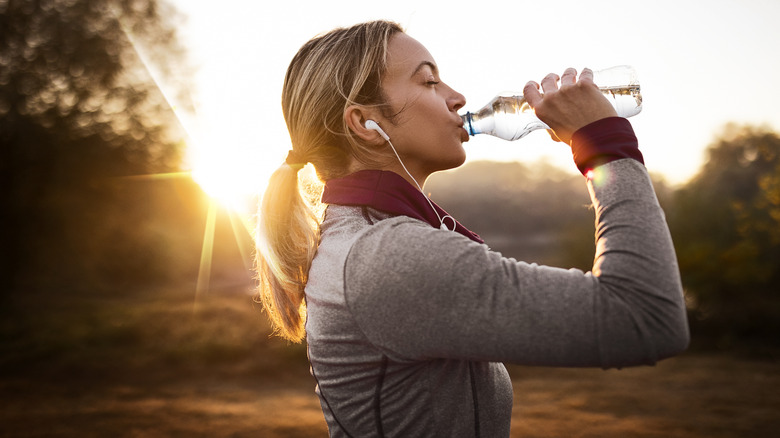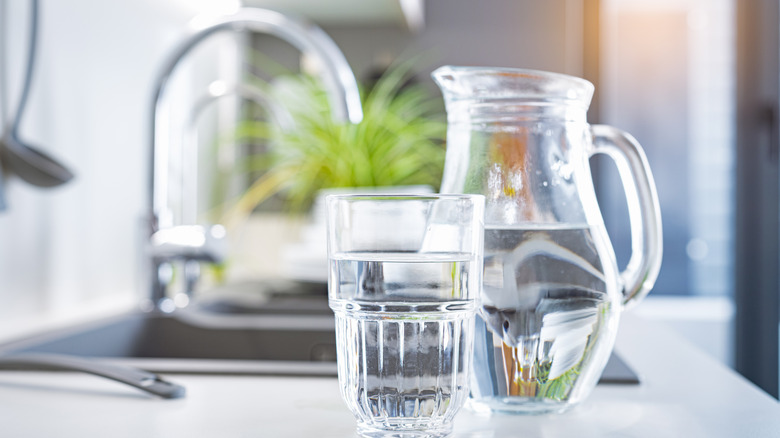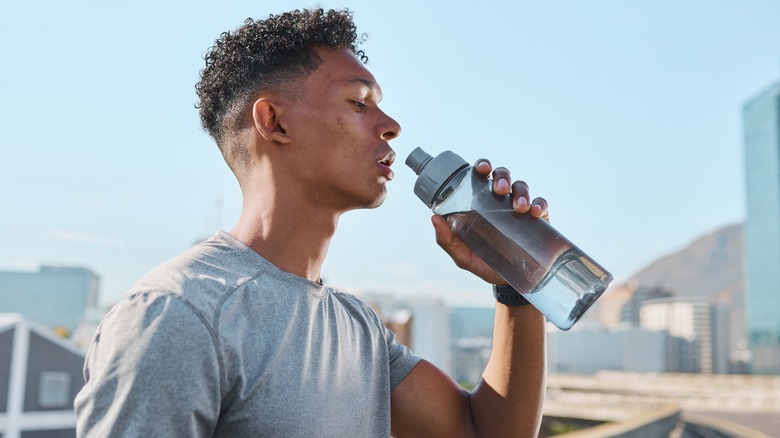The Scientific Reason Water Tastes Better When You're Thirsty
Summer is here, which means it's time to head outdoors and start exploring! Whether you're more into kayaking on a lake, off-roading on a dirt bike, or just laying outside soaking up the good weather, it's important to stay hydrated. But have you ever noticed that water seems to taste especially good when you're thirsty?
If you're a regular water drinker, you might notice how your water tastes pretty consistent. But if you're extra thirsty and haven't had water all day, that first sip of water is something extraordinary. A plain old bottle of water is suddenly transformed into an exquisite drink for body and soul.
But what does thirst have to do with the actual taste of water? To put it simply, it's science. Scientists have found that when your body is thirsty, your brain accepts water almost as a gift and decides to say thank you in the form of dopamine — a chemical that makes you happy and gives you pleasure. You instinctively associate that pleasure with the taste of the water.
Typically this effect occurs on just the first gulp or two when you're really thirsty. After your body gets that initial rehydration, the dopamine begins to wear off, making the water a little less satisfying. The flavor of your water hasn't changed at all — your brain's response to it has.
The science of thirst
Thirst is controlled by a highly specialized part of your brain, called the lamina terminalis. When your body is running low on water, brain cells within the lamina terminalis can sense the dehydration and make you feel thirsty to get you to drink water. This part of the brain also receives other information pertinent to hydration, like your blood pressure and circadian rhythm. This is also why you tend to be thirstier when you go to bed — your brain knows it's about to go to sleep, so it requests more water to get you through the night.
It takes over ten minutes for your water to have any actual effect on your hydration level, so the brain has to rely on other cues — like that refreshing feeling — to keep you from consuming too much water. This means the rush of satisfaction you feel by drinking water when you're thirsty will wear off once you're properly satiated, meaning the water just won't taste as good as it did at first.
Scientists have found that this chemical process only happens with water, not with a sugary drink or even a hydrating solution. They also found that the refreshing sensation is enhanced if the water is either hotter or colder than the temperature of the mouth. This is because the nerves that sense temperature are triggered in addition to the ones triggered by touch.
Hydration basics
Water makes up roughly 60% of the entire human body. It also helps you regulate your body temperature, protects your spinal cord and joint tissues, boosts your metabolism, and gives you flawless skin (via Healthline). Proper hydration also allows you to maximize physical activity and make you think more clearly. On the other hand, dehydration can result in fatigue, confusion, and anxiety. It's no wonder that those first sips of water can help you feel better and clear your head.
Most people only drink water when they're thirsty. According to UCLA Health, people should drink anywhere from 0.5 to 1 ounce of water per pound of body weight daily. But if you still find water rather boring, you can still get partially hydrated from certain foods. In general, you can get about 20% of your daily water intake from food. Try hydrating foods like celery, cucumbers, and lettuce. Just remember to increase your water intake if you're exercising, participating in high-intensity sports, or live in a hotter region.
But drinking water when you're thirsty is more than just simple rehydration. Brain scans have proven that when thirsty people drink water, the part of their brain responsible for emotional decision-making lights up. This is your brain giving you a chemical high-five for giving your body water. So go grab a glass of water and treat yourself!



